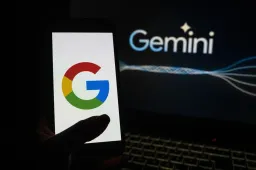
Epic Games, a leader in the gaming world, has removed Fortnite from the Samsung Galaxy Store. This big move is part of a larger fight for fair competition in app stores.
Epic Games Takes a Stand Against Samsung

Samsung recently added a feature called Auto Blocker to its phones. This feature is meant to protect users from bad apps, but it also stops people from installing apps from places other than the Samsung app store. This limits choices for both users and app makers.
Epic has been critical of Apple and Google for controlling their app stores. They've fought legal battles over unfair rules and high fees for app developers. Samsung's new feature makes it harder for people to use other app stores.
Epic's CEO, Tim Sweeney, says that people already playing Fortnite on Samsung phones can keep playing. But new players won't be able to get the game from the Samsung store. This is a big step in Epic's fight against unfair business practices in the app world.
By removing Fortnite from Samsung, Epic wants to get people talking about the problem. They hope to pressure Samsung and other app stores to change their rules. This isn't just about Fortnite; it's about how all apps are sold and shared.
Epic's actions could have a big impact on the tech industry. It's a fight for fairness for both app makers and people who use apps.
The Broader Implications of Epic Games' Move
Epic Games' decision to remove its games, including the immensely popular Fortnite, from the Samsung Galaxy Store is more than just a strategic maneuver; it is a bold statement about the company's broader ambitions. By directly challenging Samsung, a major player in the smartphone market, Epic is amplifying its crusade against anti-competitive practices within the app ecosystem.
The crux of the issue lies in the fundamental question of control. App stores, such as the App Store, Google Play Store, and Galaxy Store, have become gatekeepers of the digital world. Their ability to dictate terms and conditions to developers, including commission rates and distribution policies, has drawn increasing scrutiny. Epic Games argues that this centralized control stifles innovation, limits consumer choice, and ultimately harms developers.
Samsung's introduction of the Auto Blocker feature, while ostensibly aimed at enhancing security, has inadvertently reinforced the walled garden approach to app distribution. By preventing users from installing apps outside of the Galaxy Store, Samsung is limiting consumer freedom and reinforcing its own market position. This aligns with the broader trend of tech giants consolidating power and erecting barriers to entry for competitors.
Epic Games' stance is rooted in the principles of open competition and consumer sovereignty. The company believes that users should have the freedom to install apps from any source they choose, and that developers should be able to distribute their software without undue restrictions. By removing its games from the Galaxy Store, Epic is demonstrating its willingness to sacrifice short-term gains for the long-term goal of a more open and competitive app ecosystem.

While the immediate impact of this move is felt primarily by Fortnite players, the ramifications extend far beyond the gaming industry. The battle between Epic Games and Samsung is a proxy war for a larger struggle over the future of digital platforms. The outcome of this conflict will shape the way we access and consume digital content for years to come.
As the legal and public relations battle intensifies, it is essential to consider the potential implications for consumers, developers, and the tech industry as a whole. Increased competition could lead to lower prices, more innovative apps, and greater choice for consumers. On the other hand, a fragmented app ecosystem could create challenges for developers and users alike.
Ultimately, the resolution of this dispute will require a delicate balancing act between the interests of consumers, developers, and platform providers. It is imperative that policymakers and regulators play a role in ensuring fair competition and protecting the rights of all stakeholders. The future of the app economy hangs in the balance.
A New Way to Get Apps?
Epic Games is fighting with Samsung. This is a big deal for how we get apps. Right now, just a few big companies control where we find apps. But Epic wants to change this. They want to make their own place to sell apps.
If Epic wins, there could be lots of places to get apps. This might be good because it could lower prices and make new apps. But it could also be hard for app makers to put their apps in all the different places.
The government will need to watch what happens. They need to make sure that companies don't cheat. It's hard to know what will happen next, but things are changing fast for apps.
Loading






